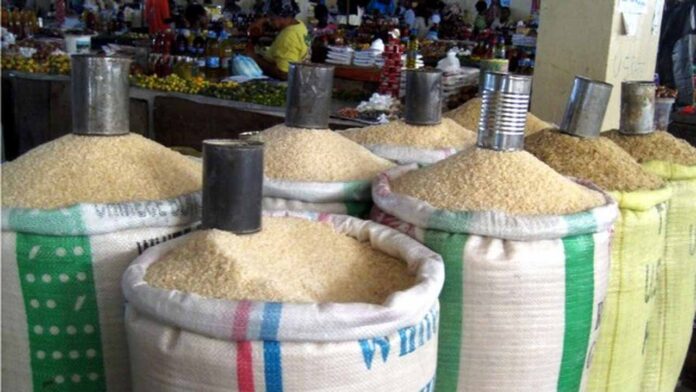By Jeph Ajobaju, Chief Copy Editor
India has a population of 1.3 billion, more than six times larger than Nigeria’s 200 million, yet the Asian country does not import food. India produces enough food to feed itself and has surplus for export, including its famous tea.
Nigeria – a fertile terrain with hardly natural disasters all year – deploys its largest workforce in farming but remains a net food importer, and food price inflation is soaring, despite funding and other measures to raise food production.
Agricultural trade deficit has widened with imports exceeding exports by N689.7 billion in 2019 compared to N549.3 billion in 2018, according to pwc.com
Cumulative agricultural imports between 2016 and 2019 stood at N3.35 trillion, four times higher than the agricultural export of N803 billion in the same period.
And the latest data published by the National Bureau of Statistics (NBS) shows that agricultural import rose 140 per cent in the first quarter of 2021 (Q1 2021) compared to Q1 2020.
Agricultural items worth N630.18 billion were imported in Q1 2021 against N262.1 billion in Q1 2020, the highest quarterly agricultural import since 2016.
Agricultural imports amounted to N3.1 trillion between Q2 2019 and Q1 2020.
Per Nairametrics, importation of agricultural items continues to rise despite billions of naira worth of initiatives by the Central Bank of Nigeria (CBN) to stimulate domestic food production.
The initiatives include Anchor Borrowers’ Programme (ABP), Targeted Credit Facility (TCF), and Agri-Business Small and Medium Enterprise Investment Scheme (AGSMEIS).
The CBN disclosed in its last Monetary Policy Committee (MPC) briefing that, through the interventions,
· N631.4 billion was advanced to 3.11 million smallholder farmers cultivating 3.8 million hectares of land under the ABP
· 29,26 beneficiaries received N111.7 billion for the AGSMEIS
· 548,345 beneficiaries received N253.4 billion under the TCF.
However, Nairametrics stressed, agricultural imports keep on increasing, triggered by multiple devaluations of the naira, demand for higher input raw materials, and rising inflation.
Nigeria’s food consumption relies significantly on the importation of food items to support local production.
For example, wheat import cost about N222 billion in Q1 2021 on top of N252 billion in Q4 2020, an annualised cost of N1 trillion ($2 billion).
Minimal growth
Abuja closed all land borders in 2019 to prevent smuggling and spur domestic food production. The borders were opened in December 2020.
And the CBN has restricted access to foreign exchange for the importation of food items, including rice, meat, chicken, sugar, and wheat.
But none of these has yielded substantial results as the agricultural sector has shown minor growth for two years, even though it is the highest employer of labour.
Nigeria’s GDP data shows that agriculture grew 2.28 per cent in Q1 2021, and had an annual growth of 2.17 per cent in 2020 and 2.36 per cent in 2019.
The sector contributed 22.35 per cent to the economy in Q1 2021, down from 26.95 per cent in Q4 2020
Persistent food price inflation
According to Nairametrics, a major problem is access to food and incessant food price increases across the country – attributed to border closure, insecurity, banditry, kidnapping, EndSARS protest, and naira devaluation, among other factors.
Food index rose 32.3 per cent between September 2019 and April 2021, which is only a weighted aggregate of market reality.
The price of a bag of pepper surged 85.7 per cent in May 2021 and that of beans 15.1 per cent. Other items with significant price increases include flour, egg, tomatoes, noodles, pasta, bread, and beverages.
Inadequate local production fuels imports
Suleiman Dikwa, CEO of Green Sahara Farms, told Nairamentrics that food imports are rising because of insufficient local production to cater for a population of 200 million.
Said he: “Another major problem we face in Nigeria and Africa at large is that we export raw materials and bring in finished goods, which has affected our trade deficit over time.
“Yes, we have increased production. But what type of production have we increased? Have we increased the capacity and the standard of food quality and primary processing?
“Have we improved the capacity to transport this food in a manner that can be utilised by the industry? Not at all.”
Dikwa added that Nigeria has to go beyond production and embrace integration through horizontal value chain where any increase in production is met with a commensurate increase in primary processing.
Insecurity in the North affects food production, he stressed, as big buyers and industries will not risk deploying their facilities in those areas and would rather import.
Dikwa urged the government to invest more in agriculture and reduce importation by major players through the creation of economic clusters.
“The government needs to sit with the companies and make direct economic investments into the needs of these companies.”
Agricultural trade deficit
The latest foreign trade report, quoted by Nairametrics, shows that agricultural imports include durum wheat, preparations of animals, blue whitings, malt, herrings, and other edible mixtures.
These items are imported from diverse countries which include Lithuania, Latvia, Denmark, Chile, Canada, Russia, France, and the United States.
A document on pwc.com/ng presented at a workshop in September 2020 divided Nigerian agriculture broadly into four areas – crop production, fishing, livestock, and forestry.
It says crop production is the largest segment and accounts for about 87.6 per cent of total agricultural output, followed by livestock (8.1 per cent), fishing (3.2 per cent), and forestry (1.1per cent).
According to pwc.com, agriculture is the largest sector in Nigeria, contributing an average 24 per cent to GDP between 2013 and 2019, and employs more than 36 per cent of the labour force, the highest percentage.
However, it noted that, despite government push for food sufficiency, Nigeria’s agricultural trade deficit continues to widen, as shown in the following figures:
• The share of agriculture in Nigeria’s total export earnings is small compared to crude oil exports. In 2019, agriculture accounted for less than 2 per cent of total exports relative to crude oil (76.5 per cent).
• Major agricultural imports include wheat, sugar, fish and milk. Main agricultural exports include sesame seeds, cashew nuts, cocoa beans, ginger, frozen shrimp, and cotton.
• Wheat dominates agricultural imports. Sesame, cashew nuts and cocoa account for more than half of agricultural exports.
• Agricultural export declined by about 11 per cent from N302.2 billion in 2018 to N269.8 billion in 2019.
• Agricultural imports rose 12.7 per cent from N851.6 billion in 2018 to N959.5 billion in 2019, the highest value ever recorded in the country.











